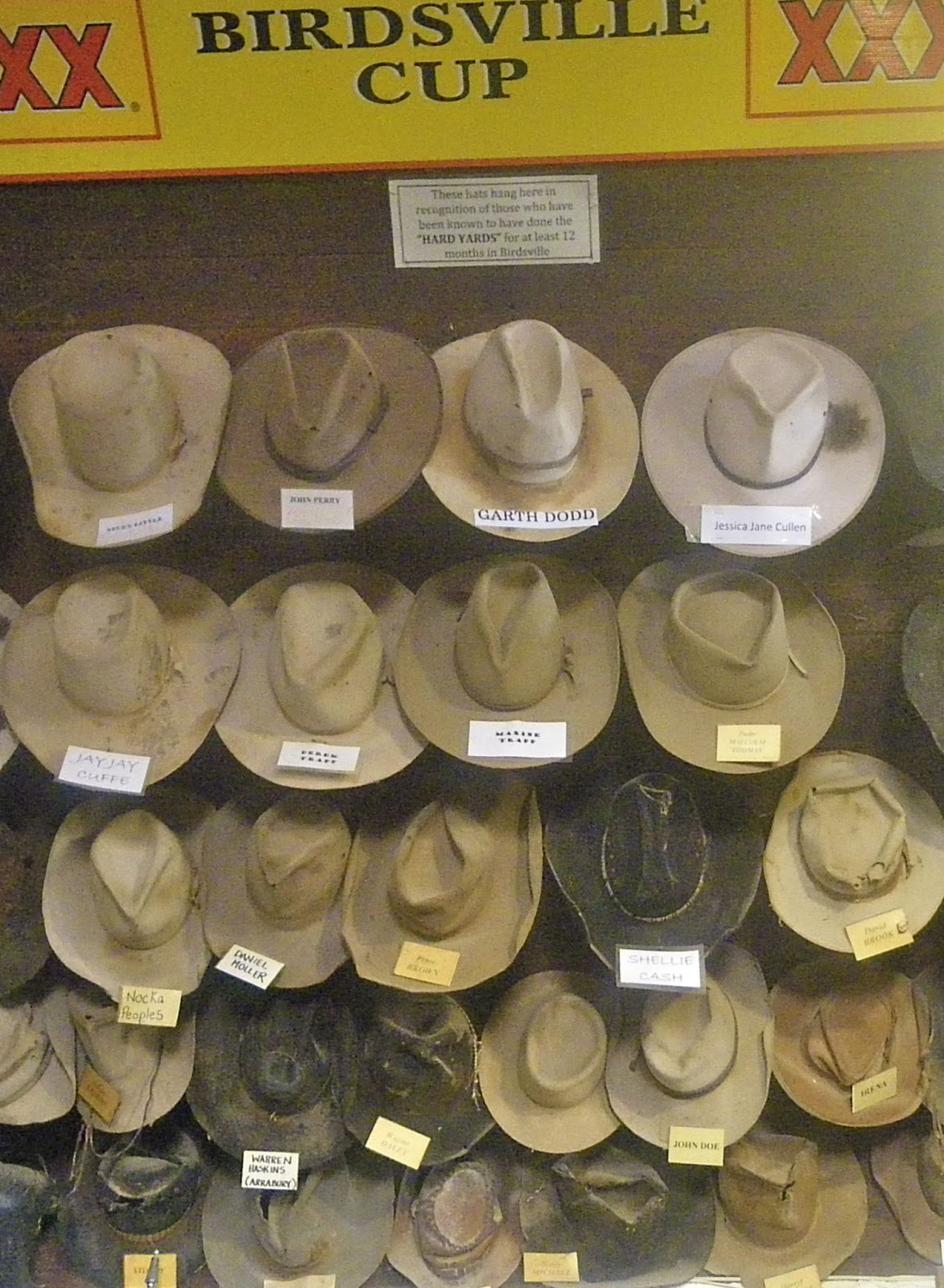Gibber, grass and gas fields
 |
| Cattle, the lifeblood of the outback |
The cattle station traffic encouraged the development of the small township of Innamincka, with a hotel, a store, a saddler's shop, a Chinese eatery and a police station. Nurses set up an Inland Mission to look after the medical needs of the widespread community, but, over time, that all came to a standstill, and it was only began to be revived after oil and gas were discovered in the surrounding Cooper basin after the 1960s.
Today, thanks to the hydrocarbons being pulled from the ground around here, Inamincka is, again, thriving. The Inland Mission building has been renovated and now acts as a tourist information centre. The hotel, while lacking the bush character of Nockundra, has expanded, and is as well run as most in any city. Today it offers anything from excellent coffee, to historic river cruises, to mining conference facilities and accommodation. The shop next door is well stocked; the comunity growing. A constant flow of traffic from mining personnel and tourists keeps the town square busy, even vibrant.
Once, only camels and bullocks could negotiate tracks this far inland. Today, the well graded gravel roads cope with a trail of dust-raising mining utes, road trains, camping rigs and delivery trucks.
One delivery driver we spoke with brought with him just one package from Orange, in less than twelve hours from pickup. He still had another hundred kilometres to go before dark, his direction for delivery reading simply: 'a hundred clicks north of Innaminca'. We chatted to him late in the afternoon as he was taking time out to reserve a room for the night at the back of the pub in case he might arrive back from delivery well after pub closing time. And, to find out from the store, what lay a hundred clicks north of Innamincka; and what condition the road might be in for the rest of his trip.
A little bit of outback station ebay, perhaps. Or a piece of mining paraphenalia ordered. Hard to imagine, though, the eventual cost of that dedicated delivery charge: including diesel, accommodation, vehicle maintenance, extended hours of a driver's time. All for one package.
We were advised by locals and transit visitors not to take the near road that headed north. The January floods had caused deep washouts; the land abrasians were reportedly too difficult to negotiate. The delivery truck was planning to risk it. But not us. We took the local's advice and travelled the much longer route to Birdsville via the Arrabury Station track, a little over 500 kilometres that day.
Which was all wide open road, lonely wild dogs, and the occasional things that go bump on the landscape: all oddly and uniquely beautiful.
Further along the Birdsville Developmental Road we passed the most beautiful work of stone art: a sinuous Rainbow Serpent has been woven around one of the dune forms enroute to Birdsville. It is quite stunning, but with no explanatory board anywhere we have no clue as to who did it, why, or for what reason. But it made a beautiful photo opportunity: all pink and white and blue, and so real it was almost moving.
We arrived to more stunning colour at the Birdsville Bakery, where the delectable curried camel pies are on offer; and where the astonishing Sturt's Desert Pea has been planted, and is in full rich colour.
The colour of blood. And some Koori tribes tell a tale of blood. Of a young woman who escaped wedlock to an elderly man by running away with her young lover. But the lovers were tracked down. The jilted man killed them both, and their relatives. But, later, when he returned to their place of death he found blood-red flowers growing out of the dirt where their blood flowed.
As the sun goes down and the seething mass of retreating flies gives us a little respite for the evening, we head across the road to hang our hat, along with others there, at the iconic Birdsville pub. This is as far west as our convoy of travellers is headed this trip. Birdsville.











Comments
Post a Comment